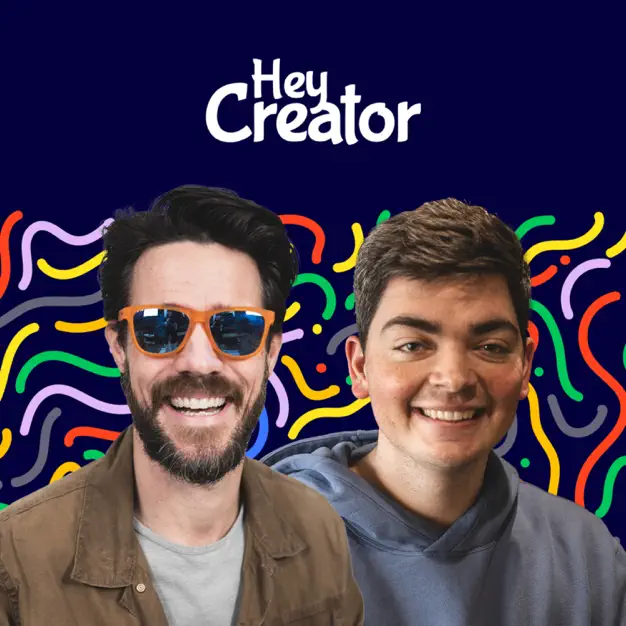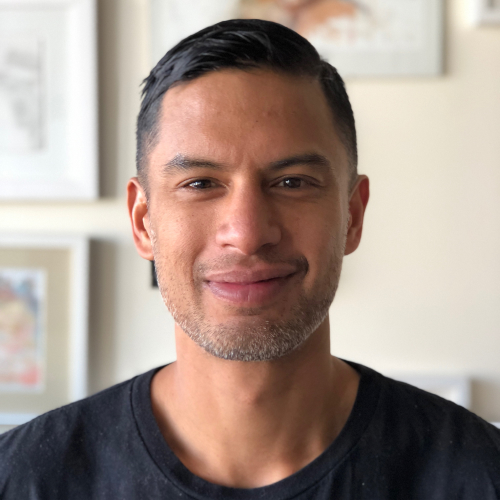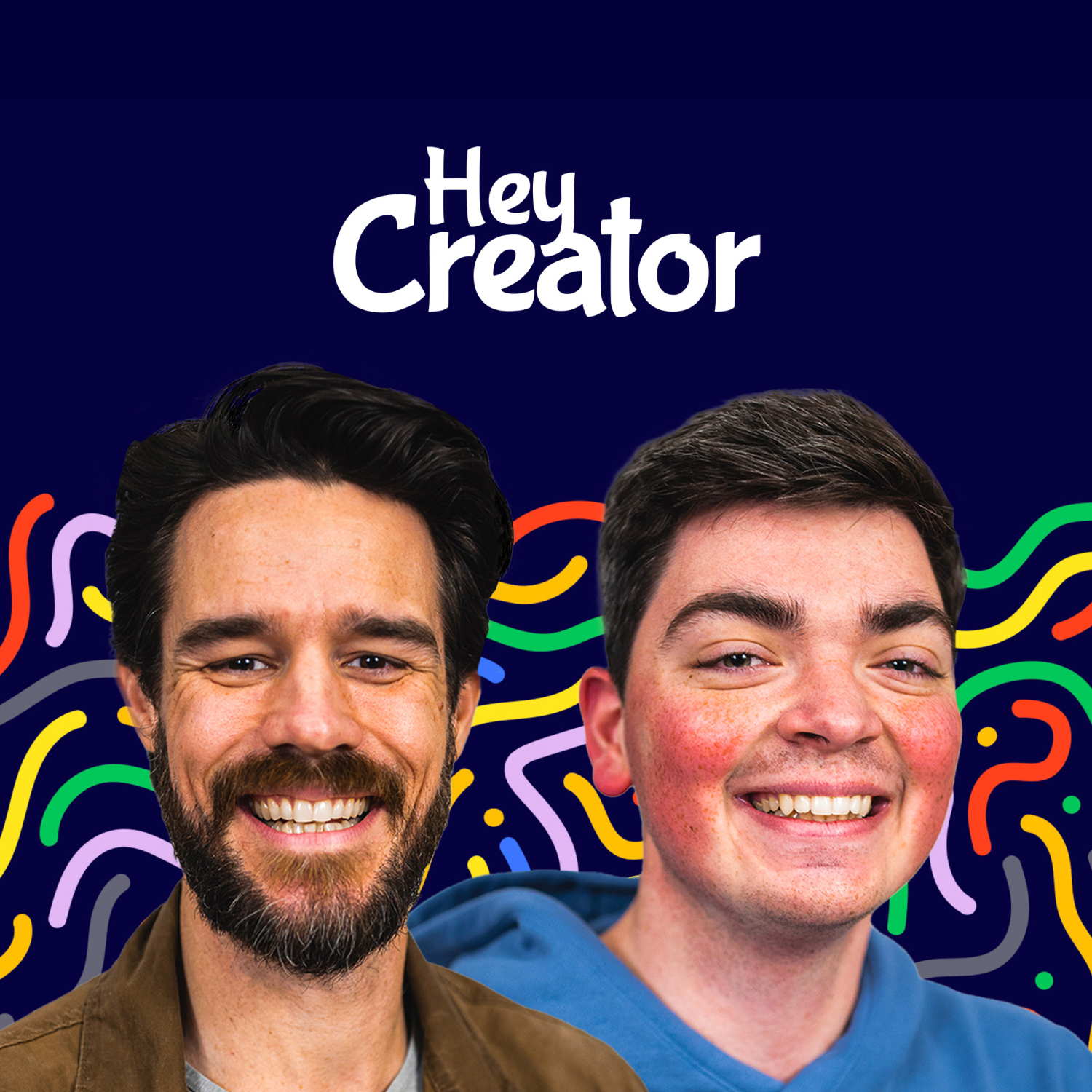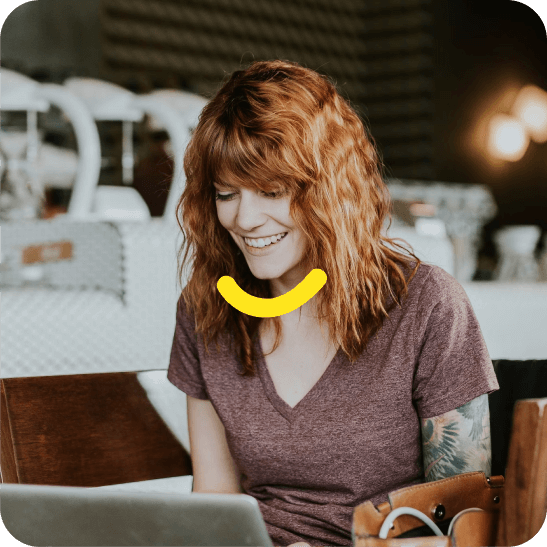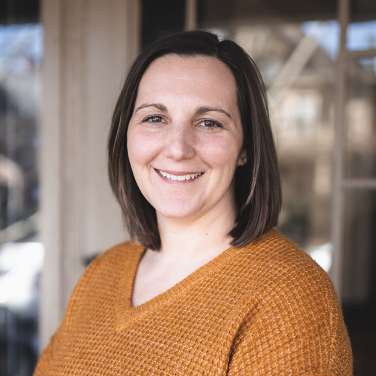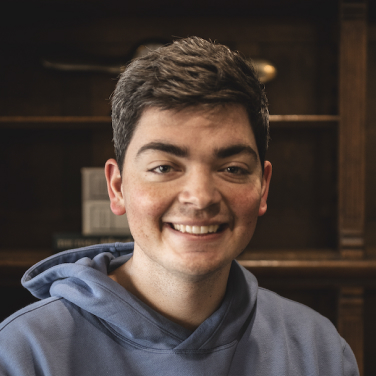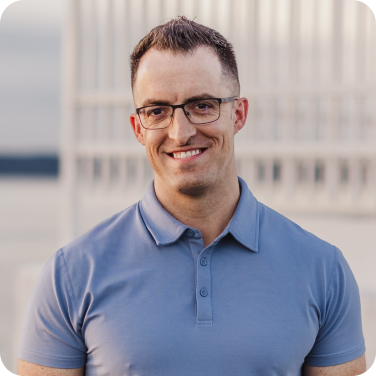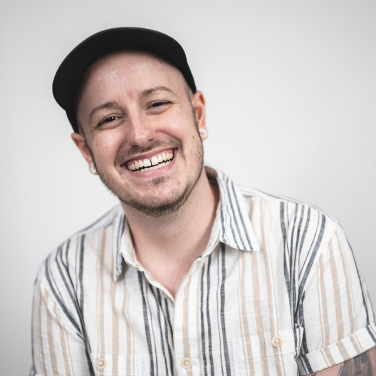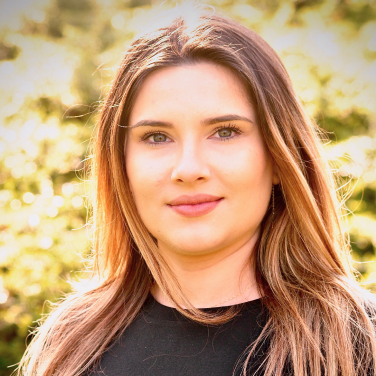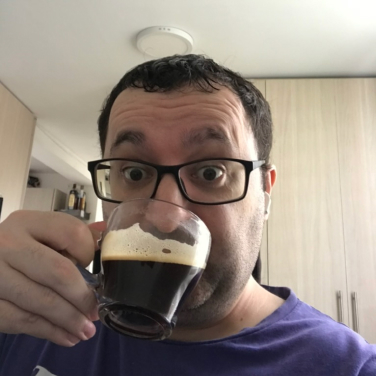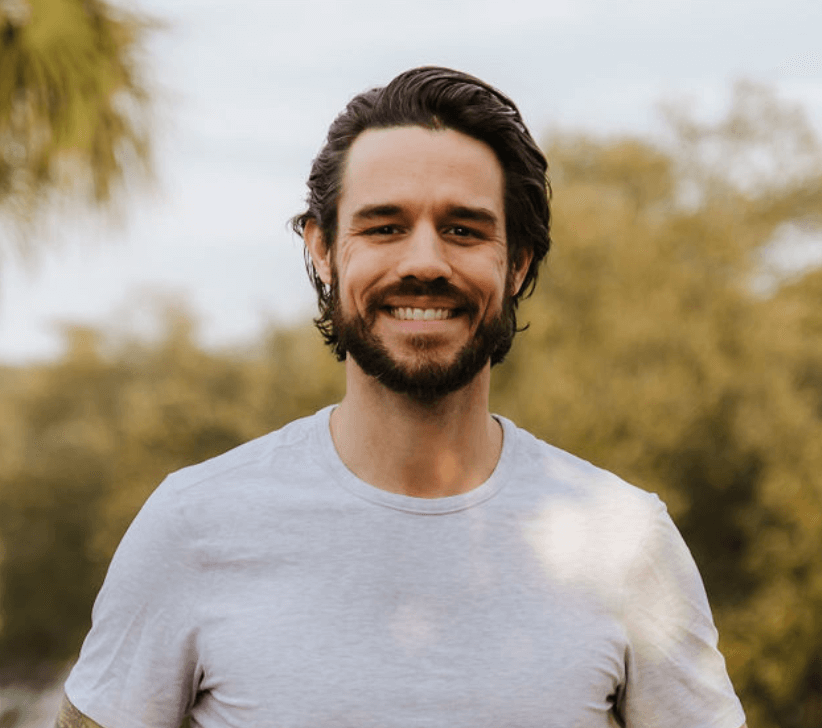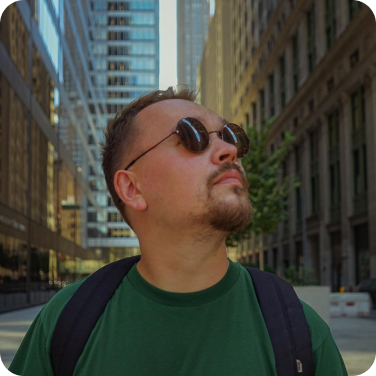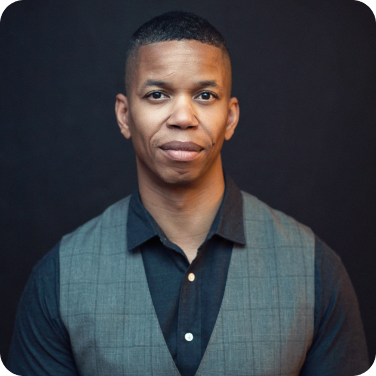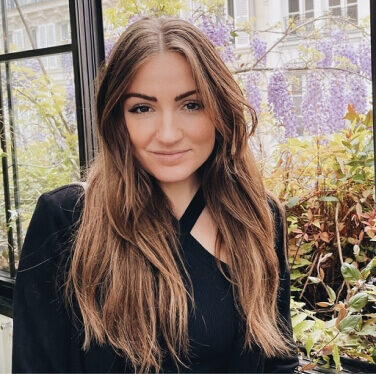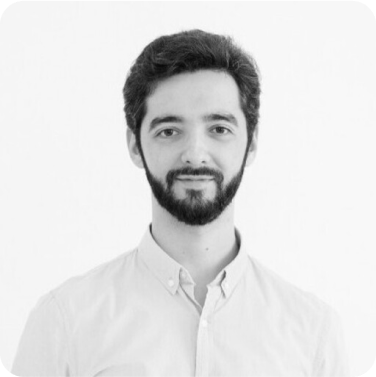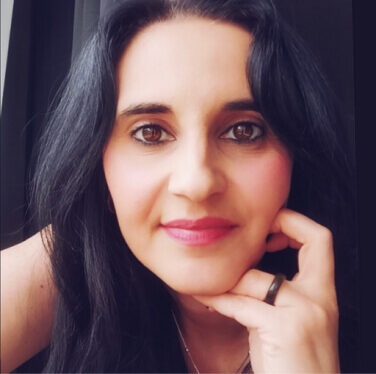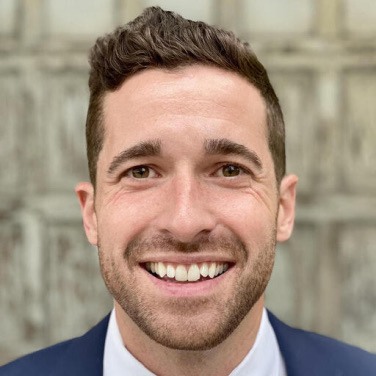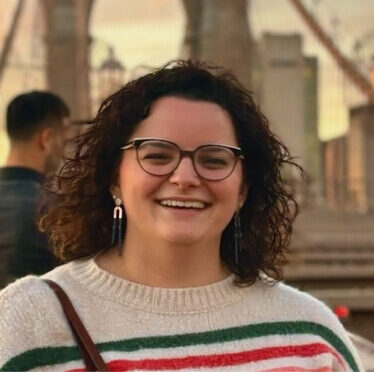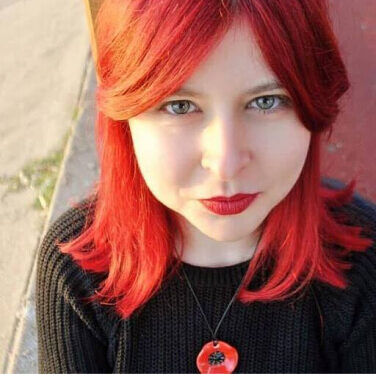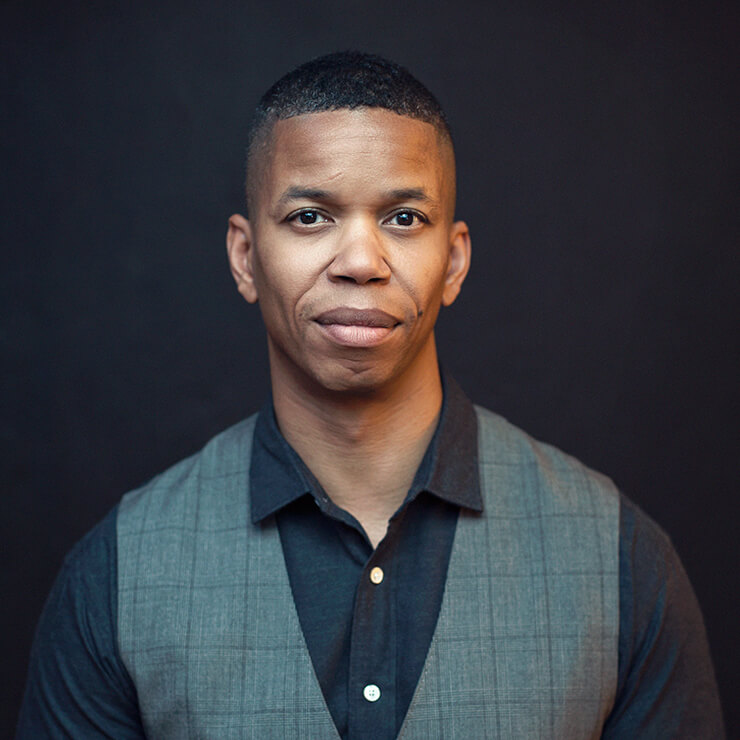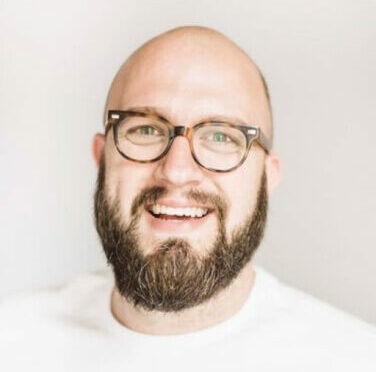[00:00:00] Tim Forkin: How do you create a life that you don’t need a vacation from? As creators, this is what we’re all looking for, so we found the perfect person to answer it for us. Khe Hy left a 2 million salary on Wall Street for a life of creating, surfing, building his own businesses, and spending time with his family.
Khe has 50, 000 subscribers to his newsletter, and as you’ll hear in this video, he optimizes his life for aliveness. Literally, I have goose bumps as I’m telling you this, which means I’m I’m happy as a clam. Him and Matt have been friends for years. So let’s pass it to their conversation to
[00:00:32] Matt Ragland: kick us off.
Okay. One of the things that I admire the most about you is your courage and willingness to pivot away from really successful businesses and careers in when they just don’t make sense for you anymore. Can you tell me a little bit about like where, where that courage comes from? And we’ll also talk a little bit about like what you’ve been pivoting away from.
But I think like. Whatever it is that people are listening to, and you have that in the back of your mind, I’m scared to change this thing. How have you been able to do that?
[00:01:05] Khe Hy: It’s funny because I don’t view myself as particularly courageous, especially going back to when I was in my more formative years.
I think I would have words, adjectives, describe me more as timid or meek or risk averse. Those are the ways that I would describe myself. But yes, you know, having walked away from a big wall street career at the age of 35 and then To have walking away from, you know, a minute, one and a half million dollar business in productivity courses over the past, I think I have a seven year pivot cycle where I’m just, you know, burn all the ships.
So talk to me when I’m, you know, 51, that will be when I’m due for my next pivot. Uh, but I think that the thing is, you know, the, the courage part is, I think people, they, they always look at. Like when you make this big move that you have a lot invested in, and they’re always thinking about what can go wrong.
So if you leave Wall Street, it’s like, well, what if I could never make that great paycheck again? What if I can’t afford this thing for my kids, right? But there’s a question that’s missing here in this is what can go right? So just that little reframe, because we’re, we’re wired, we have a fight or flight reflex and we’re so wired to over index on everything that can go wrong.
And everything that can go right is just a tiny, tiny microcosm of possibilities. So yes. I walked away from a lot of money on Wall Street, and I’ve never, I will never come close to reclaiming that, but I also work 60 to 80 hours a week. Right. So, you know, so I know that I can lose that salary, but oh my God, since the years that I left Wall Street, never set an alarm.
Literally, never set an alarm. Yeah. First time I wore a suit, my daughter, uh, who only knows me as kind of after Wall Street, she turns to me, she goes, Daddy, why are you dressed like Barack Obama? Because in her mind, only presidents wear suits. Yes, and that was like, that was an everyday thing for you.
Exactly. We were walking down the street, my daughter was nine in the summer, and she saw these people going to the subway in New York. We don’t live in New York and she said, Dad, do people work in the summer? Yeah. How about, so what can go right? Not to mention I’ve surfed 1500 days, uh, since I left five.
So that’s like the equivalent of being a surfer for probably 15 years. Right. Now, if you’re a weekend surfer, uh, in five years, that’s yeah, that’s surfing every weekend. Yeah. Yeah. Well, what
[00:03:40] Matt Ragland: can go right? That is so, like, under asked by ourselves, and even, like, you’re really good at asking these types of questions of friends.
You’ve asked me questions like this before, and I’ve heard, I’ve heard you have these conversations with other people. So as you’re watching or listening to this, Be willing to ask yourself that question, what can go right? And then if you have a friend, loved one, or, you know, even just a coworker, who’s like confiding in you, some of these questions, like be, be the type of friend or coworker or family member that asks them like, yeah, there’s some things that might go wrong, but what could go right?
And how exciting would that be to you? And I think that will, that will, uh, unveil a lot about what you’re thinking and what you really want to do.
[00:04:25] Khe Hy: I think that’s phenomenal advice. We should also talk about, uh, How you can experiment with this because people look at it from the outside and they’re like, he woke up one day and he quit wall street.
Like, no, right. Things have been planted. Seeds have been planted for many, many years leading up to that point. But the other thing I want to say is that, and I think people don’t, they don’t believe me when I say this, but I hand on my heart. It is true is that I optimize for the present moment. And more specifically, to me, if I’m having fun, or actually the specific test that I use is, do I feel alive doing this?
If I feel alive doing something, Then let’s say it doesn’t have the financial success that I want it to have, or it doesn’t have the view count success that I want it to have. Okay. That’s disappointing. But if it took me a year to do that, I was alive for a year. I’m not going to look back and regret that using aliveness.
Using fun, using a zest for life as a litmus test of what you’re doing. Look, I’ll give you a perfect example. I’ve written a weekly 500 to 2000 word essay for 450 consecutive weeks.
[00:05:35] Matt Ragland: Rad reads, check it
[00:05:36] Khe Hy: out. radreads.co. To be honest, the engagements, um, waning. Even though my list size is growing because people there’s really not a huge market for 500 to 2, 000 words right now Sadly, but that’s that’s true tweets reels tick tocks, whatever, but I love it today I don’t know when this will come out But today we’re in the midst of the tail end of the the Kendrick and Drake beef, right?
Consumed by, um, Kendrick’s my neighbor. So, you know, where those chips stack, but I wrote a piece about the, uh, the un, unlikely winner of the Kendrick Drake beef, the winner is actually J. Cole. And the story is about J. Cole. He opted out. And so then the lesson is what things do you need to opt out of?
Cause you know, J. Cole, he’s actually literally sitting on a beach right now being like, these two guys are like going for the jugular and he’s on the beach with his headphones. Like I’m just chilling. Yeah. But I say that because. When I saw that the stuff go down last week, I’m like, I can’t wait to write about this this week and I didn’t know what I was going to say because I’m not a hip hop commentator.
So I wasn’t actually commenting on the beef, but I wanted to pull in some lesson. I’m like, J Cole, that’s, I have literally, I have goosebumps as I’m telling you this, which means happy as a clam. If no one reads it, I’m still happy I put it out there because I got to use this creative muscle. I love hip hop as a fan.
I got to be there for the conversation in the moment and teach something to my audience.
[00:07:07] Matt Ragland: And that’s something that we can definitely lose the more that we can get into our topic, our business, the more that it optimizing for that happiness, for that excitement, for that aliveness is something that the more that you, Often the more that you get into it, the more that that can wane.
Um, because like when you’re thinking about like when I started my YouTube channel, I made like 30 videos in 30 days and made 60 videos that year. I don’t think I’ve ever 60 or 65 ish videos that year. I haven’t made 65 videos since. In a single year, and I remember that what I was really focused on that year is like, what kind of story can I tell about the life that we’re living, the things that we’re doing?
But the way that I was thinking about is like, even if nobody watches this, even if it like doesn’t take off or anything, I’m still going to make this because I think it’ll be cool to watch with my kids. It was just like, uh, a library of, like, home videos. Uh, it was a little bit more than that, but it was that same sort of thing.
Like, I like watching, like, what my parents were doing when, like, they were in their 30s had a bunch of kids. And I’m like, now I’m in my 40s and I have a bunch of kids. It was like, what? What was like, what was my dad up to? And I want my kids to be like, whether they want to watch it or not. I think it’d be cool.
That was my mindset at the time. Like, I just want to do something that feels fun to me and is creatively fulfilling and who knows what it’ll turn into and. What do you know? It ended up turning into something. You talked about experimenting with these things. And I still think about this like, okay, I think I’m either like pivoting away from like a traditional W2 career, or maybe I’ve had a successful creator business.
We both worked in productivity. That’s how we met. And we both pivoted away from that sense. Like, so how do you start making some of those experiments to see, like, just get a feel for what you want to be doing next?
[00:09:10] Khe Hy: Yeah, I think that this is where it’s so beautiful for creators because the experiments usually are just very low cost because they’re digital, you know, there’s the time, but there’s not a high financial cost, right?
If I, if I’m Mark Zuckerberg and I’m, and I say, I want to experiment in the metaverse, there’s a gigantic financial cost, right? If I’m Khe, he, and I want to experiment with parenting content. And I’ve never done a parenting video. The worst thing that happens is I wasted the time it takes to make the parenting video and maybe I repel some of some of my audience.
Um, and so I think the experiments, uh, can, can be as simple as whatever medium you’re in. Right. Uh, whatever domain you’re in, just trying something different. Right. So like if you make YouTube videos about productivity, just throw in a video on parenting. See how you feel making it. Right. Cause sometimes we fantasize things like, Oh, it’d be so cool to be a parenting YouTuber or a gaming YouTuber.
But then you realize you don’t actually want to make it. The videos about that topic. You just like that topic, right? So just take a, take an ad back. I’ll give you a very simple example of the way I’m approaching it. Matt is, um, Tik TOK. I have no followers on Tik TOK. I’m old as F to be on that platform.
My, my bio is youngest managing director at black rock. Oldest person on Tik TOK. That’s my, that’s my bio. Good one. That’s a good one. And. And so, and I’m not sure, you know, I sell very, very high end coaching to, to basically executives. I’m pretty sure they’re not on Tik TOK. Uh, but I think it’s kind of cool.
And TikTok is being banned in a year. I think it’s going to be banned, but let’s not talk about that. So probably experiment. I was, I said, I want to try. To make one TikTok video a day and I want to do it the TikTok way, which, you know, it’s like the camera’s all janky, the audio sucks, you know, the editing cuts are rough.
I want to make that style video because by the way, those are the styles of video I like watching. Actually, when I see something polished in my TikTok feed, I don’t watch it. You and
[00:11:19] Matt Ragland: producer, Tim, producer, co-host Tim, have a very, like, are very aligned on that, on that, uh, take for TikTok and TikTok, I’ll not
[00:11:25] Khe Hy: watch a pro, a
[00:11:26] Matt Ragland: pro,
[00:11:27] Khe Hy: I’ll watch it on YouTube short.
It’s so weird. Like the media is the message. Um, and so, so I decided to start making these videos and I, I have a time limit is I’m not going to let myself, the whole thing’s going to take 10 minutes. Okay. I like that. And, and I’m going to try to do it every day, but if I’m tired or if my kid’s sick, I give myself permission, you know, James Clear’s like don’t miss twice.
Right. I kind of give myself permission. Don’t miss twice. Like three days in a row and no, no calendar, no, nothing. Just whatever you feel like doing. And I’ve done maybe 35 of these in the past, maybe 40, 40 odd days. And what I’ve quickly learned is a, it’s actually really fun. So I’m, it’s passing the aliveness test.
Yep. B there’s a good business use case. Cause even if tick tock goes away, I think to me at tick tock is much more like Twitter, it’s just faster. It’s much rougher, high volume. That style of communicating is not going away, for sure.
[00:12:25] Matt Ragland: Yeah, the number of reps
[00:12:26] Khe Hy: that you are putting in. Exactly. The reps on that will, will translate to some, some other medium.
By the way, they’re actually really translating well on like, like, uh, making paid ads. So it’s a very similar, you notice a lot of paid ads are actually very janky looking. Yep. For the same reason people feel more connected to the janky ad than the polished
[00:12:45] Matt Ragland: ad. Well, it’s like, uh, that, you know, for another, for another, uh, rapper reference, it was the Kanye commercial during the Super Bowl.
[00:12:51] Khe Hy: Yeah,
[00:12:51] Matt Ragland: exactly.
[00:12:53] Khe Hy: Exactly. And what I’ve found is what TikTok, the algorithm, the fans, however you want to describe it, they want to hear the inside baseball of Wall Street. Those videos get five times more views than productivity, family, parenting. So now I have a decision. Do I, do I want to lean into that? Do I just keep the experiment going?
Do I shut down the experiment? Uh, and I’ll probably just continue to do what I want to do and maybe bias a little bit to more. I don’t want to be a Wall Street TikToker because that’s not like, that’s not why I’m here. Um, but that’s a very contained experiment. It took about 30 days. I didn’t, there was very little self loathing.
Um, and by the way, in that 30 days, I almost crossed the threshold, which gets me a link in bio, which is a thousand subs. So that might open up some new doors. I don’t know. And so I think that that shows, I hope that communicates very low risk experiment, low risk, but also I didn’t want that mental burden.
Like I have to do it every day, right? Cause that really stresses me out and it starts to suck the fun out of it. But the reality is that I really enjoy doing it. So I think I only missed. two days in 45 days. Um, and so contained and, and we’ll see, we’ll see where it takes us. I, I had my first crossover kind of tick talk to Instagram.
Like, come, can I come ask you a question? It wasn’t a client, but I was like, Oh, this is cause that’s the thinking too. I think there’s a tick talk to YouTube funnel that I haven’t fully. Understood. But I think it’s there. It’s like, if you like someone’s content there, you basically have one link, you know, go see their Instagram or their YouTube.
So that’s kind of what I’m playing with, where, where my, my YouTube is growing at a pretty healthy clip.
[00:14:38] Matt Ragland: You said something else that I thought was interesting of where the views pointing, because when you said like, Oh, the wall street, the inside baseball of wall street gets five X, the views traditionally, and maybe if maybe it’s Just because of where you are as a creator and that you’ve already had success, you’ve had a million dollar business that you have like moved on from, uh, moved forward with is like if you were a new, newer creator and you were telling me these things, like I made 35 videos in 30 days, uh, you know, round that.
And this one type of video did five X the views of the others be like, you know what you are now. You’re a Wall Street TikToker. That’s what you are. Or, like, for me, I looked at it in 2018, 2019 as like, oh, my bullet journal videos got five times the views of, like, my marketing videos. Guess what I am now for the next three years?
A bullet journal YouTuber. Those things are like, it’s such, it’s such a temptation. I think, like, having the distinction, if you’re listening, between. Like, is this the first thing that I’m going in on? Because I do think like being able to identify a trend, something that like most likely you will be interested in in some ways it might’ve been a little different for you having come from wall street, maybe that’s not the thing that you would have wanted to make your first foray into versus like, and this is another way that I can, I can tie it in.
Like, My most popular tweets and posts of all time are about parenting are about being a dad and that happened last summer. I’ve had multiple, uh, go viral, go over a million views. And if this was Matt five years ago, I’d be like, guess I’m a parenting influencer now. I guess I’m a dad influencer. And I’m like, Oh no, like I would, I can like do the things that I know to do well.
It’s like, well, you know, just have a simple newsletter landing page. We’ll stand up a community so that dads can talk together. That’s more of a. Recent, uh, progression. But that’s not the thing I’m like, I’m not burning it all down and thinking like, where’d you go in, we’re going in the direction of the views, everybody.
And so like, just being able to understand. Uh, maybe you don’t always need to follow the views or the likes or the subscribers. If that’s not what you know, this is the thing that I want to be doing.
[00:16:58] Khe Hy: And I think that’s a, that’s a great point because I don’t, I’ve been a creator for nine years and I think I’m a solid creator.
I’m not. Kind of in the group are a solid creator, elite creators. Um, but thank you, Matt. Um, but I think one thing I realized when I started nine years ago, I always tell people this Instagram stories didn’t exist. So we were just straight up like, uh, time based Instagram feed of your friends. That’s the world we were living in.
Right. And Jack Conte has this beautiful. Presentation from South by Southwest that we can link to that. It’s like the death of the follower. Yeah. And so we’re kind of in the death of the follower moment where followers don’t, Tik TOK followers doesn’t matter. You can go viral with no Tik TOK followers.
Right. Um, and you could never have done that back in the day, in the old days. And so it’s this, it’s this challenge. It’s. So what I’m trying to say is if you’re starting as a creator today, it is so competitive, you know, you probably need video. You don’t have to, but you probably need something with video because that’s how people want to consume.
It’s definitely, it’s definitely ideal. Yeah. And, and I think there’s this real tension because, um, you can’t, in the early days, you can’t just be like, in the old days, you’re like, this is, This is what I ate for lunch. And here’s a picture of my kid. Here’s a parenting tip and like, Oh, I’m productive. Here’s my bullet journal.
Like in the old days, there was just so much less competition that you could actually do that and build that connection with people. And then, you know, it’s like kind of build an audience and then. Build a business around it. I don’t, I’d love to hear your thoughts on this, but I don’t think that you can do that anymore in the early days because just this con this nebulous concept of building an audience, it’s so much more difficult.
And so it’s this strange tension where like, you do have to find that maybe I’ll lean in with the wall street inside baseball. Okay. You have to know like, what’s your goal, right? Are you trying to monetize? Are you trying to. Mass awareness to have a book deal in five years. Are you trying to go to the public speaking route?
Are you trying to go to the notion templates route? Like these are like such different vectors. Like if you’re trying to go the notion template route or you’re trying to get high end coaching clients, your kind of top of funnel strategies, completely different, like completely. And I think that’s why. But there’s a chicken and an egg because if you’re just starting, you actually don’t know what your product is.
And so I would, uh, and I would love to hear your thoughts on this, but I would kind of encourage people to at least have an eye on how am I going to, if your goal is to make money, let’s put as an art to a side. If your goal is to make money, You have to have a view on like, okay, I’m going to, there’s lanes, right?
Coaching courses, info products, sponsorships, books, public speaking, high end consulting, what have you, templates, no kind of what your monetization likelihoods are. Like I’m never going to sell templates. I’m always going to sell higher, more expensive products, which just changes my top of funnel strategy.
Cause I’m not by definition, I’m not playing a volume game. Right.
[00:20:18] Matt Ragland: Yeah. And understand this is something that we’ve, we’ve talked about on the channel and I’m glad you brought it up because like having a really clear, as clear as you can get goal for not just what kind of business that you want to have, but what kind of lifestyle do you want that business to have?
And like, you’re a great person to talk to about this because like, you’ve been like, I don’t set alarm clocks. I surf a hundred, a hundred days, a hundred more, more than that, much more than that. You surf. 250. 250, 300 a year. So that is like, understand is like, okay, now what, what do I, uh, need to make to fund this lifestyle?
What are the things, like, where do I want to live? Because often people, what are my boundaries? Yeah. What am I?
[00:21:02] Khe Hy: Huge one. What are my boundaries?
[00:21:04] Matt Ragland: Yeah. Tell me a little bit more about that. So, I mean, you’ve alluded to it, but like, I don’t want to, I don’t want to skip over that because. Yeah.
[00:21:11] Khe Hy: So if you surf in my part of.
The country and Southern California, the, it gets windy at about 11. Okay. And so you can’t wind and surf, not friends. So you want to surf before 11, but if your clients are in the East coast, that’s 2 PM, you know, so you’re basically saying, I don’t want to take on any commitments before 2 PM. Easter. And that might cost you, some clients might say, that doesn’t work for me, and you have to say, then I don’t want your money, or I’m willing to surf less because your money is important to me.
Mm-Hmm. , and I can’t give you the answer to that question. For me. Yeah. Like the, I want less money, but I’m not optimizing this. Purely for money. If I was optimizing purely for
[00:22:01] Matt Ragland: money, I would’ve stayed on Wall Street. Even a good way to like go into this. Just with an understanding of maybe right now in the time of life and the time of business that I’m in, I am willing to take on an earlier client and that means that I can surf less.
Or for me, that might mean like, oh, I, you know, wanna do Juujitsu lesson or go, go on fewer hikes, but. I know and this is something where you have to be really careful of looking at it and saying, of looking at, saying, I have a limit on this. So when I get two clients, or I’m going to work with this, I’m going to tell this client like, Hey, I can do this time for, I can do this, Time that works better for you for three months, but after those three months, we need to be able to shift to a different time or, uh, we’re not gonna be able to work together anymore.
If those are the things that are important to you and they’re the boundaries that you want to set.
[00:22:56] Khe Hy: Mm-Hmm. . And sometimes those decisions are hard, right? You saw on Twitter. I just got back from this amazing retreat with all of these awesome, awesome creators. And I’m so honored to be invited. And it’s three nights.
I don’t, I don’t want to spend three nights away from my kids that much. So usually I use my three night quota for surf trips. So now it’s a really hard decision. And I actually, this year I said, I’m like, you know, baby, I’m not going to go on my, my annual surf trip. Cause I think this, this internet meetups more important in this moment.
And I’m kind of, I had an amazing time and I’m kind of second guessing myself. Cause like that surf trip. So important to me, right? And my friends are there and they’re sending me pictures and stuff. And so I think next year I might just bow out and, you know, and my kids will be one year older next year and maybe I will feel cool taking six days away from them.
And I could do both, but I’m not counting on that. It’s like be a dad first. Right. And then it’s like be a surfer or businessman. Usually it’s actually surfing, but in this case it was a unique opportunity. So I just. It’s moved, moved, you know, business on top. And there are a lot of my friends there too. So it’s like business and friendship and, and we’ll see.
So I just want listeners to know that it’s not set in stone. You can, you like, if some client says like, yeah, I can only meet you at 10 AM and, but they’re an awesome client or they’re offering a ridiculous amount of money, I’m going to say, heck yeah.
[00:24:22] Matt Ragland: Yeah. I think it just understand like most people don’t like intentionally have the conversation with themselves of like, What are, what are my trade offs for this, and am I willing to make them, and is there a limit, or is there a constraint, or is there something that I need to change, uh, about this in, in the future, that will more align with the kind of life that I want to live, and with the values that I have.
There’s another thing that I thought about, I’ve given this advice before, but especially on, like, the experimentation. That you were talking about is I would encourage people to like, take some time, like, especially if you’re thinking about making a change in business or work type of type of lifestyle, and you want to do something that is maybe more creative or more on your own, you may want to leave a W2 job and do something that’s more.
Yeah, more, more on your own terms. One of the things that I would do occasionally when I was at ConvertKit or when I was at Podia is I would take, uh, one of my personal days or even one of my like PTO vacation days. And usually I would do that on like a Friday or maybe a Monday, but I would take that day off from my W 2 and I would spend that day pretending, not pretending, actually, like.
doing the type of work that I felt like I would be able to do, so I might get up a little later, maybe not, but I would, like, spend some time. I’m going to spend some extra time working out. If I knew that eventually when I’m doing this type of work, I want to have like, I want to be able to work out at a different time, or maybe I want to have a longer workout or like whatever.
Uh, it’s not all about workouts, but it is also like I’m going to spend three hours making making videos or like working on working on a long form, uh, essay that I wouldn’t normally have the amount of time to do. And then I’m going to go to a coffee shop. So it’s like, I, I am going to meet a friend that I wouldn’t normally be able to do because I have like.
These meetings are like these, these responsibilities in my W2 doing that for like a day or maybe a couple of days, uh, uh, throughout, throughout the year, as you kind of experienced and be like, Hey, just kind of, just kind of try on what this lifestyle, what this work pace would be like.
[00:26:31] Khe Hy: Totally. And I want to, I want to, there’s this quote.
I didn’t, I think I forget who said it might be Dickie Bush or Nick Cole or one of the, one of them, it says everyone wants to be the noun. No one wants to do the verb. So everyone wants to be a YouTuber. Everyone wants to be a writer. No one wants to make YouTube videos. Yeah, no one wants to write. Right. And so you have to do the verb before you can be, uh, you have to become the noun.
And I’ll give you a very quick example here, because I think we fetish like, Oh, I want to be an author. I want to be a YouTuber. I want to be, so this is kind of outside the realm of traditional creator, but like, I’ve always had this fantasy of being a producer, like making hip hop beats. And it’s kind of like, if you can’t rap, and I mean, I don’t fit the bill as a rapper, you know, there is like, you know, Rich Brian, who’s an Asian rapper.
Uh, but. If you, um, if you can’t rap, you make beats. And so, and, and beat makers are held up, you know, Kanye used to be a beat maker, Metro Boomin, like Timberland, like they’re all iconic beat makers and they’re, they’re huge. And so I have this fantasy of like, I want to, I want to make beats. I want to make beats.
I want to make beats. But it’s kind of like the way people talk about YouTube. Like I want to be a YouTuber. I want, and then they’re like, you know, you have to spend two hours on a thumbnail. They’re like, what? Yeah. I don’t want to be a YouTuber. I thought you just, you know, get to be like, you know, be, be Mr.
Beast or be blogging. Yeah. You just blog and like you’ve logged from Cancun. Like I thought that was what you’d be a YouTuber was like. So I gave myself a challenge. Cause I’m like, I’ve been talking about this beat making thing for like 15 years. I’m going to hire, you know, you can get a guitar instructor.
I’m going to hire a beat making coach, teacher, and I’m going to have, I don’t know the cadence yet, like twice a month beat making private lessons. And I’m going to ask them to give me homework and I’m going to have to practice during the week. And then I’m going to get feedback and all that. I don’t want to self do it on, learn it on YouTube.
And I bet because I tried it once on GarageBand. And it was like, this is so fricking hard and very like, like detail oriented. I’m like, I bet that after four lessons, I’m going to say to myself, you know what? This is a, this ain’t for me. Yeah. And so if you can, that’s what the, if you can, exactly. You can scratch that itch.
And if you can close the door, right, that was the lesson in the, in the post today, J. Cole, J. Cole closed the door on the beef. He’s like, you can make fun of me for not going down this path. I’m closing the door. And he’s actually chilling on a beach right now by himself, you know, and Drake’s house is getting shot up by, you know, randos.
[00:28:58] Matt Ragland: Yeah. And that just being able to like, not have the mental, like, overload with it. You don’t have that, I guess, mental overhead is the word that I was looking for. It’s like, Oh yeah, no, I did that. I did it for like, you know, a couple of months and I made a couple of beats. I was like, I don’t, Care to do that ,
[00:29:15] Khe Hy: and I bet, I mean, YouTube is, is the beat mate.
I mean, I bet that so many people when they get, when you lift up the curtain behind YouTube, you say to say, holy crap, this is what it takes. Right. I think being a, a professional YouTuber is harder than being an investment banker. And that’s a job where you work eight to a hundred hours a week and you get paid way more money.
I, I really do believe it. Yeah. I, I think it’s, it’s that level of workload.
[00:29:44] Matt Ragland: Our, our mutual friend, Nat Eliason said, uh, on the show a little while ago, he’s like, you realize there are a lot better ways to make money than being a creator. Like it, the chances of you like spending 10 years on a creator versus like just staying at like regular, regular jobs and like slowly progressing.
Yeah. Like, I think what’s in toxic, I know what’s intoxicating about creator entrepreneurship is that the, there’s the potential of big spikes, uh, that just for the majority of people, even at relatively high paying jobs, investment bankers, probably one that’s, uh, obviously has some like spike potential as well, but like.
You know, you may get, you may only get the 5 percent raise every year, but if you get that every year for 20 years, then like, I don’t know if I’ve said, I thought about this the other day and I don’t think I’ve said it like this explicitly or publicly, um, I haven’t made, this is my fourth year as a full time, like creator outside of like W2 work.
Um, I have yet to make. The same amount of money that I made the last year I was like employed in side hustling So I was like, I’ve been close, but like, it’s been like, it’s been more challenging, it’s been more fun, but I’ve probably worked more hours. Uh, it’s definitely had like a higher cognitive and mental load on me.
Uh, there have been like, Some like very stressful money situations where like, I didn’t have those. And I was just like, yeah, the, the checks coming in and you know, once he, once a year it’s, it’s going up five to 10 percent sounds great. And so like, there’s, there’s like some, I’m not. Trying to like scare people away, but I do want you to like think about the like
[00:31:32] Khe Hy: I want to scare people away Because I don’t think enough people talk I don’t think people talk about this because you only see the Charlie D’Amelio’s and you know You only see those people you don’t see the ninety nine hundred ninety nine thousand other that wanted to be You know Charlie or Dixie or whatever Alex Earl Um, I mean, I’ll give you more and please note that I’m in extremes because I worked on Wall Street.
So like the salaries there are crazy. Let’s go. Uh, if you took my nine years of being a creator, 35 to 44 years old, I made total over nine years. I made more money the year I was 27 in one year. So I made more money and granted in that year I was, I was overpaid. So I think it was like, I made like 700, 700 grand.
Um, but I made more in one year as a 27 year old that I made in nine years. Supporting two kids from 35 to 44, I had, I had way less fun in that 27 year. I had an amazing time. Uh, but again, it’s, it’s all, it’s back to like what we’re talking about with,
[00:32:32] Matt Ragland: with optimizing and understanding like, Hey, this is the kind of life that I want to live and what can go right.
What can go right? Like, what can go right is that I’m going to surf 1, 500 days in those nine years. And, you know, would you have surfed 150 days? I surfed four days a year that year. I surfed four days that year. Yeah. So, yeah, less, less than 100 versus 1, 500. Over and over the same time span. Uh, if that played out, Hey, I wanted to ask what’s, uh, what are your, I don’t know if I’ve ever asked you, what’s, what are your tattoos say on your right?
Oh,
[00:33:06] Khe Hy: uh, so it’s actually funny. So these are flight numbers. I love typography. And when I quit wall street, I, we did a family eat, pray, love me, my wife, my 18 month old, and we were in Asia for, uh, four months kind of traveling kind of one way ticket type lifestyle. Yeah. But here’s the thing about this, is that back in the day, uh, on Wall Street, it was not okay to have visible tattoos.
Uh, I think that’s changed in the nine years that I left. I, I know people that have full on sleeves, like down to their wrists, but it was kind of like, if you couldn’t, if you could see it with a golf shirt on, it was, there were some companies, there probably still are some companies. Oh, I bet there are.
And these are like tiny, if you can’t see this, uh, they’re, they’re very small, but they are in a visible part of my body. And that was a, uh, just a reminder to myself, it’s like, if someone’s. Going to not hire you because you have nine numbers on your forearm. You don’t want to work for them full stop. And so that was like to put that permanently on your body, especially an industry that is that, that, that, that’s a industry that you may not want to close the door to if you have access, if you have access to it.
But that was a reminder to myself that, um, that was like a, a weird way of burning, burning your ships.
[00:34:22] Matt Ragland: I like that. I like that a lot. This is like a little, a little subtle way. Mm-Hmm. . Now it makes for a good story. Yeah, it does. Khe, this has been, uh, super awesome. Thank you so much for, uh, sharing, uh, your, your story, the, the ways that you think through success and pivots.
Uh, if there’s anything else that you wanna say to wrap up, but at the very least, like, let us know where, where we can find you and, uh, ways that we can get involved with your, with your work and the way that you live.
[00:34:49] Khe Hy: Awesome. Well, thank you. Always a pleasure. And thank you, everyone that’s watching and listening.
I think the one piece of advice I will say is pay attention to aliveness, right? Like when you feel alive, you know what that feeling is like and try doesn’t mean that 100 percent of every waking moment is going to be alive. No. But use that as a compass, right? Because if you’re, if you’re 99%, what’s the opposite of alive?
Dead inside. If 99 percent of your day is dead inside, at least ask the question, why do I feel so dead inside? And how can I feel more alive? So just use that as a barometer and, and, and instead of like, I need to go from, You know, 5 percent alive inside to a hundred, just be like, what can I do? That takes me from 5 percent aliveness to 6 percent aliveness, 6 percent aliveness to 8 percent aliveness.
And if you follow that, you’re going to be unstoppable because no one wants to compete with the person that is feeling alive every day.
[00:35:41] Matt Ragland: One, as James Clear says 1 percent more alive every day. That’s what I mean.
[00:35:46] Khe Hy: Shout out James. Uh, thank you so much. Y’all could find me radreads. co, um, head over there. My newsletter is probably my most, uh, uh, regular way of communicating with folks.
I host the Examine Life podcast on YouTube and Spotify. Um, and then I’m active on TikTok, Instagram, and LinkedIn. Just Google Khe Hy, and then put in the social network.



